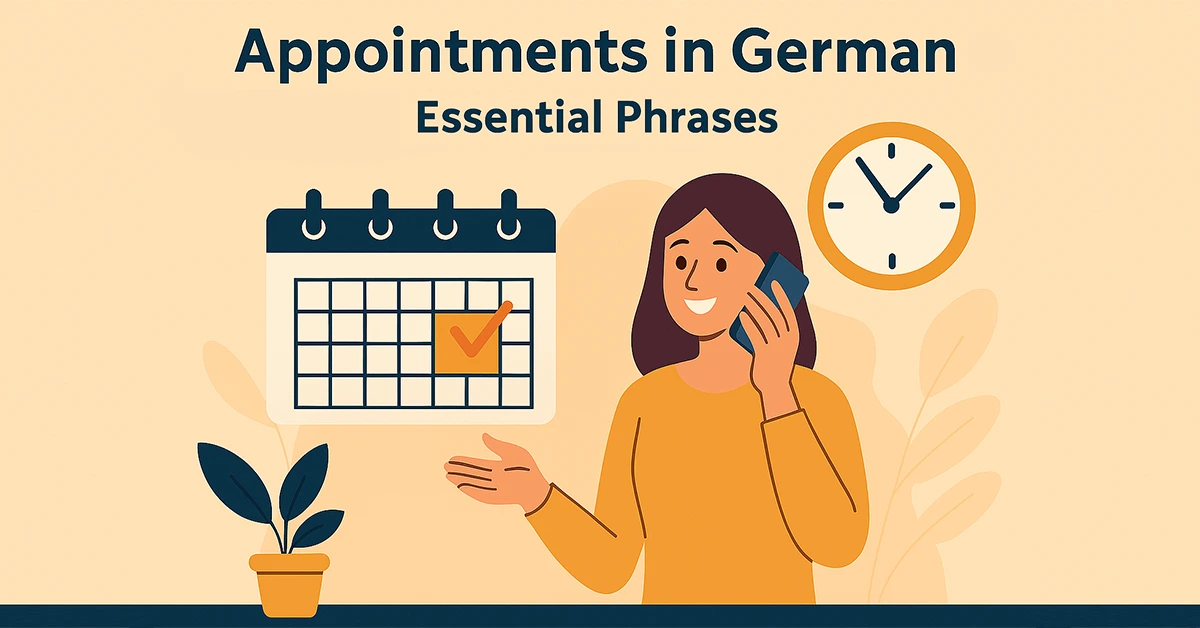German Speaking Practice
-

Making Appointments in German – Essential Phrases
Learn 50+ essential German phrases & real-life dialogues for making appointments. Doctor, salon, office & more. Download your free PDF cheat sheet!

Learn 50+ essential German phrases & real-life dialogues for making appointments. Doctor, salon, office & more. Download your free PDF cheat sheet!